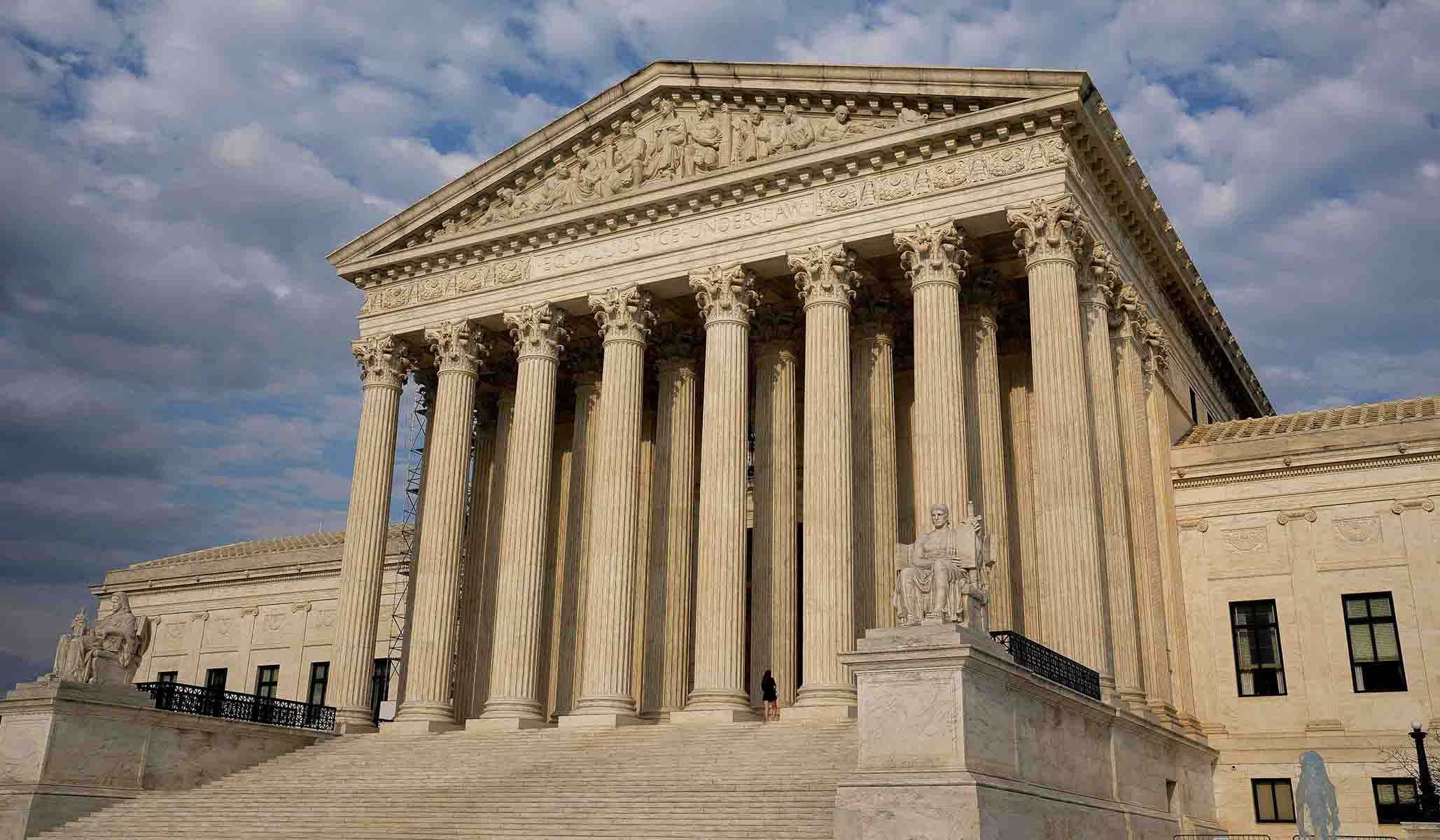


NRPLUS MEMBER ARTICLE F or decades, the legitimacy and value of so-called independent agencies have been the focus of intense scholarly debate. While some claim that they’re an essential check on the dictates of an increasingly imperial presidency, others argue that they undermine executive accountability and violate the constitutional separation of powers.
The latter position was forcefully advocated by panelists last week at the Federalist Society’s annual Executive Branch Review Conference in D.C., where lawyers from around the country gathered to discuss the future of the administrative state. A breakout panel, “The Administrative State on Trial?,” centered on forthcoming Supreme Court cases that deal with administrative law, “the constitutional questions raised by these cases, the potential effect of the Court’s decisions on agency structure and practices, the rebalancing of power between the three branches, and the future of the administrative state.” During this timely, wide-ranging conversation, the fate of independent agencies was a major topic of discussion.
“I think the whole idea of an independent agency these days makes just no sense at all,” said George Washington University Law School professor Richard Pierce, one of the academics on the panel.
Independent agencies are federal departments that operate somewhat independently of the executive branch. Unlike executive agencies, whose leaders are appointed by and can be removed at will by the president, the heads of independent agencies are appointed for fixed terms and can only be removed “for cause,” giving them a more significant degree of autonomy.
Congress created the first independent agency, the Interstate Commerce Commission, in 1887 to regulate the railroad industry, but such agencies didn’t really start to proliferate until the progressive Wilson and FDR administrations. The idea behind them was to insulate certain government functions from the muck and mire of day-to-day politics. Proponents also contend that agencies not directly accountable to the White House can serve as a check on presidential power. The “for cause” requirement was explicitly devised to ensure that agency officials are not subject to arbitrary or politically motivated termination and can perform their duties without fear of retribution or retaliation.
In 1935, the Supreme Court legitimized independent agencies within our constitutional scheme through its Humphrey’s Executor v. United States decision. But in the 2020 Seila Law LLC v. Consumer Financial Protection Bureau case, the Court created a new rule that allows the president to remove the heads of most independent agencies at will, excepting only the heads of certain multi-member commissions whose for-cause removal provisions would not impede the president’s ability to exercise executive power. While the Court did not explicitly overturn Humphrey’s Executor in Seila Law, it did strike a severe blow to the 87-year-old precedent.
The notion that government policy should be grounded in empiricism rather than ideological or political considerations is rooted in the philosophy of the preeminent early 20th century progressive John Dewey. Dewey maintained that expertise should always trump the caprices of the masses and saw independent agencies as a way to promote greater efficiency in government. He believed independent agencies could be staffed by experts in various fields who could make decisions based on objective data and analysis rather than political pressure or personal interests.
But independent agencies are deeply problematic for several reasons. Most obvious are their democratic deficiencies. Independent agencies prioritize empiricism over deference to the elected head of state, sacrificing democratic accountability for expertise. While conservatives recognize that excessive majoritarianism can be detrimental to civic health and don’t necessarily spurn expertise, we still believe that democratic accountability is crucial for ensuring that those in positions of power are held responsible for their actions and that the government remains responsive to the needs and concerns of the people it serves.
For example, Pierce noted, “We are 30 months into the Biden administration and Joe Biden has no control over telecommunications policy, none, because that agency [the Federal Communications Commission] has been [split] 2–2 [between Democratic and Republican commissioners] the entire time that he’s been [in office]. . . . I don’t [agree with] his policies and [his] telecommunications [policy], but I think a president should [have] control over it, not some people who were appointed long ago by his predecessor.”
By infringing upon the president’s constitutionally ordained authority to remove executive officers, independent agencies evade the scrutiny of the people’s preeminent representative, undermining trust in government and public accountability, prerequisites for a free society.
Such agencies’ quasi-judicial functions also pose a problem for the constitutional separation of powers. In former Supreme Court justice Antonin Scalia’s famed dissent in Morrison v. Olson, a 1988 case dealing with the constitutionality of the Independent Counsel Act, he argued that the law violated the separation of powers by allowing Congress to encroach on the executive branch’s authority. He rightly contended that the Constitution’s Framers intended for the president to have complete control over the executive branch, and that the law effectively created a fourth branch of government. He also claimed that independent counsels were not accountable to the president and therefore threatened individual liberty.
Of course, there are good arguments for keeping certain government functions — e.g. investigations and prosecutions of government officials accused of wrongdoing and the Federal Reserve’s monetary policies — free from undue political influence or interference. But it remains the case that the vast majority of independent agencies ought to be normal executive departments. Overturning Humphrey’s Executor would help restore the balance of power between the branches of government, ensure that the president could fulfill his constitutional duty to take care that the laws are faithfully executed, and keep Congress accountable for the laws that it passes.
Thankfully, at least one ongoing legal challenge to independent agencies may provide the Court a vehicle for doing just that — and there’s reason to think that other such challenges may arise in the future.
